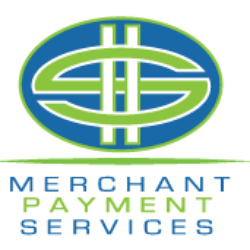Technological advancement has changed the landscape of the B2B industry in India. Aided by the introduction of revolutionary technology like Big Data, Artificial Intelligence, and payment gateways, the B2B sector has now grown to claim 43% market share among all unicorn start-ups in India. This is especially true for the global arena, where B2B has taken significant strides.
Tech-driven B2B companies require tech-driven payment solutions. B2B payments are mainly made via online mediums. However, payment gateways have a better chance of making the payment process easier for B2B companies, especially when receiving and making bulk payments. The B2B payment industry that was once dominated by cheques, cash, and other conventional payment forms is now steadily moving to online alternatives- thanks to their ease and simplicity. Reliance on older payment modes can hamper the long-term growth of a B2B company. The complex nature of B2B payments can be easily solved when such businesses integrate with a payment gateway.
Payment gateways act like a make-or-break determinant for B2B business since this is the platform where money exchanges hands. Following are some of the reasons why B2B companies require a payment gateway.
Secure transactions
The risk of fraudulent transactions is the biggest threat for all B2B businesses. Companies need to ensure that all payments are processed securely without any cyber threats when paying online. Since the scale of B2B payments is enormous, even a minuscule threat can lead to a massive financial hit. Thus, the need for a secure payment platform is high.
This is where PCI DSS compliant B2B payment gateways hosted by Zaakpay come into play.
All payments undertaken via payment gateways are authorized and verified. This essentially means that the selling business is assured of timely and full payments by their customers in a B2B transaction. Payment gateways in India offer high security and encryption protection to all transactions made via them, enabling the buyers to feel reassured about the safety of their money.
Maintain transaction records
Payment gateways always record a copy of the transaction- be it receiving payment or making one. Every payment sent or received will be electronically recorded by the payment gateway. Thus, the need for physical verification of the payment can be eliminated. What’s more, this can be used later for tax and other purposes.
Accept payments from anywhere in India
A payment gateway has no geographical or time barriers for making or accepting payments. A business entity can easily be placed in Delhi and send and receive payments from Pune and track those transactions in real-time.
Similarly, with the advent of payment gateways in India, B2B players no longer have to worry about a long payment process in a remote location. Businesses can send and receive payments with a simple click, irrespective of their location.
Diverse modes of payment
A wide range of payment modes is available in the Indian market that caters to niche audiences. While some modes like Net Banking & card payments are more popular among a particular class of customers, newer payment methods like Digital Wallets, QR codes, and the ‘Buy Now Pay Later’ model are gaining traction among the younger generation. A payment gateway provides B2B enterprises access to all such modes of online payment and, thus, a newer set of customers.
Zaakpay, for example, introduces a rather impressive array of features like customized pricing plans and UI checkout for business entities, easy integration of the payment gateway on different platforms, and pre-built plug-ins. Most importantly, it offers 100+ different online payment methods to allow flexible payment solutions to all businesses.
Feasible payment alternative to cash
Traditional B2B companies have enjoyed the benefits that India’s former cash-based economy offered for over several decades. The most considerable peril with cash transactions is that the end-to-end process takes a very long time, and multiple stakeholders are involved. The entire process can be unnecessarily complicated from payment collection, tallying cash, physically depositing it in the bank, and waiting endlessly for it to reflect in the bank account.
Payment gateways in India overcome these hurdles and successfully provide cross-network payment mechanisms and, unlike commercial cards, do not charge exorbitant fees.
Instant payment settlement
The payments received using a payment gateway are directly deposited into the merchant’s business bank account without any manual interference. The entire process takes mere seconds, unlike traditional payment modes.
Bulk transactions made possible
B2B businesses have hundreds of transactions being processed each day. Payment gateways go beyond simply facilitating these transactions, and they make these transactions smoother and faster. Moreover, payment gateways are equipped to handle bulk-online payments without any glitches within seconds.
In addition to this, bulk transactions for B2B companies required a painfully long manual process for payment collection. Payment gateways bridge this gap with a powerful processor and a high transaction rate. Buk payments become super efficient with a payment gateway and reduce the dependency on human power to process these payments.
Conclusion
This is just a small list of benefits that a payment gateway can offer to a B2B company. The actual benefits that may accrue are far-reaching and manifold. Apart from making the monetary transaction process far more efficient and responsive, the introduction of a payment gateway into its existing payment mechanism can make the process much more rewarding for the merchant and the customer. Zaakpay’s payment gateway does precisely this and helps businesses simplify their payment process.

